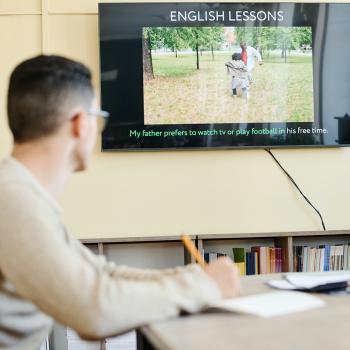
Emotional Intelligence and coaching skills
Teachers today need more than just teaching skills.This Erasmus+ course helps you rediscover confidence,motivation and purpose.Apply emotional intelligence and coaching techniques in the classroom.Enhance self-awareness,interpersonal skills and create emotionally supportive learning environments.
Description
Each participants can fill the registration form at the following
link: https://forms.gle/zZaf3kbYGr8GJwMt6
All this is creating the need, for teachers, to rediscover, develop and enhance awareness, self-esteem, confidence in their working method and in learners, motivation and sense of their work, the absence of which leads to a frustration state and disaffection.
These demands go beyond mere teaching, taking on the development and acquisition of skills typical of other professions, such as:
1. Acquire Knowledge and Understanding:
- Gain a comprehensive understanding of emotional intelligence and its relevance to teaching.
- Develop a solid knowledge base of coaching techniques and how they can be applied in educational settings.
2. Enhance Self-Awareness and Interpersonal Skills:
- Improve their self-awareness and emotional regulation, leading to greater self-confidence and empathy in the classroom.
- Develop stronger interpersonal skills, including active listening and conflict resolution abilities.
3. Apply Coaching Skills in Teaching:
- Become proficient in using coaching methods to guide students toward their academic and personal goals.
- Be capable of facilitating constructive feedback and goal-setting conversations with students.
4. Create Emotionally Intelligent Classrooms:
- Foster a classroom environment that is emotionally supportive and conducive to effective learning.
- Apply emotional intelligence principles to manage classroom dynamics and student relationships.
5. Develop Action Plans for Continuous Improvement:
- Establish personal action plans for integrating emotional intelligence and coaching in their teaching roles.
- Commit to ongoing self-improvement and professional development in these areas.
Learning objectives
1.Understand Emotional Intelligence (EI):
- Define emotional intelligence and its significance in teaching.
- Identify the five components of EI (self-awareness, self-regulation, motivation, empathy, and social skills) and their application in educational settings.
2. Develop Self-Awareness:
- Recognize their own emotions and their impact on teaching.
- Analyze personal strengths and areas for growth related to EI.
- Create a personal development plan to enhance self-awareness.
3. Enhance Interpersonal Skills:
- Apply active listening and empathy to connect with students and colleagues.
- Demonstrate effective non-verbal communication and body language.
- Resolve conflicts and navigate difficult conversations in a constructive manner.
4. Master Coaching Skills:
- Explain the concept of coaching in education.
- Utilize the GROW coaching model to guide meaningful conversations with students.
- Apply coaching techniques such as questioning, feedback, and goal setting in teaching.
5. Integrate EI and Coaching in Teaching:
- Design emotionally intelligent classrooms that promote a positive learning environment.
- Provide constructive feedback and assessment aligned with coaching principles.
- Develop action plans to implement EI and coaching strategies in their teaching practice.
Methodology & assessment
Interactive workshops: Hands-on activities and group exercises to apply concepts.
Case studies & simulations: Analyzing real-world scenarios to develop practical skills.
Peer learning & group discussions: Fostering mutual learning and knowledge exchange.
Trainer-led presentations: Providing foundational knowledge and expert insights.
Individual reflection: Encouraging personal growth and integration of learning.
Participants' learning will be assessed through:
Active participation: Engagement in discussions and activities.
Practical application exercises: Demonstrating skill acquisition during workshops.
Development of a personal action plan: Outlining how they'll integrate learning into their teaching.
Self-assessment & peer feedback: Reflecting on progress and receiving constructive input.
Informal observation: Trainers will gauge understanding and engagement throughout the course.
Materials, digital tools & other learning resources
Participants will receive comprehensive course workbooks with theoretical frameworks, practical exercises, and templates. Presentation slides will support key concepts. We'll utilize interactive online platforms for collaborative activities (e.g., Padlet, Miro) and to share additional resources like articles, videos, and relevant research. Participants are encouraged to bring their own digital devices for hands-on engagement. Access to a dedicated online repository
Certification details
Certificate of attendance
Europass mobility certificate
Pricing, packages and other information
-
Price:400Euro
-
Course package content:
Our standard course package typically includes:
- Course tuition and training materials.
- Certification of attendance.
- Welcome activities to facilitate networking.
- Coffee breaks during training hours.
- Guidance and support for Erasmus+ grant documentation (e.g., Europass Mobility).
Accommodation, meals, and local transport are generally NOT included in the base course fee. We are ready to support each specific request
-
Additional information:Description of the services and activities included in the course package (such as accommodation, meals, transport) or available at extra cost.
-
Cancellation & changes:
We understand that plans can change. That's why we offer flexible options for cancellations and changes, while also providing clarity on our policy in case of unforeseen circumstances.
Participant-Initiated Changes and Cancellations:
Changes: We are happy to accommodate changes to your registration, such as transferring to a different course date or modifying your accommodation choices, whenever possible. Please contact us as soon as possible with your request and we will do our best to assist you
-
Additional information:The options and conditions for change and cancellation, and the policy in case of unforeseen circumstances (force majeure).
Додатне информације
-
Језик:English
-
Target audience ISCED:Primary education (ISCED 1)Lower secondary education (ISCED 2)Upper secondary education (ISCED 3)
-
Target audience type:TeacherCareers Councillor
-
Learning time:25 hours or more
Upcoming sessions
Past sessions
More courses by this organiser




